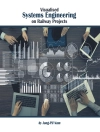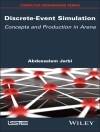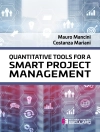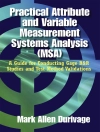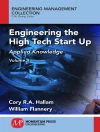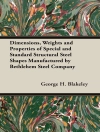This book presents selected papers from the 5th International Conference on Inventive Systems and Control (ICISC 2021), held on 7–8 January 2021 at JCT College of Engineering and Technology, Coimbatore, India. The book includes an analysis of the class of intelligent systems and control techniques that utilises various artificial intelligence technologies, where there are no mathematical models and systems available to make them remain controlled. Inspired by various existing intelligent techniques, the primary goal is to present the emerging innovative models to tackle the challenges faced by the existing computing and communication technologies. The proceedings of ICISC 2021 aim at presenting the state-of-the-art research developments, trends, and solutions for the challenges faced by the intelligent systems and control community with the real-world applications. The included research articles feature the novel and unpublished research works on intelligent system representation and control.
Table des matières
Chapter 1. Knowledge Graphs in Recommender Systems.- Chapter 2. Cyberbullying Detection on Social Media using SVM.- Chapter 3. Ultraviolet Radiation in Healthcare Applications: A Decades-old Game Changer Technology in COVID’19.- Chapter 4. Multi-agent Ludo Game Collaborative Path Planning based on Markov Decision Process.- Chapter 5. An Analysis of Epileptic Seizure Detection and Classification using Machine Learning based Artificial Neural Network.- Chapter 6. Improving Image Resolution On Surveillance Images using SRGAN.- Chapter 7. Smart City: Recent Advances and Research Issues.- Chapter 8. HOUSEN: Hybrid Over-Under Sampling and Ensemble Approach for Imbalance Classification.- Chapter 9. E-Pro: Euler Angle and Probabilistic Model for Face Detection and Recognition.- Chapter 10. Classification of Covid-19 Tweets Using Deep Learning Techniques.- Chapter 11. Applied Classification Algorithms used in Data Mining During the Vocational Guidance Process in Machine Learning.- Chapter12. Meta-heuristic Algorithm for the Global Optimization: Intelligent Ice Fishing Algorithm.- Chapter 13. Progression of EEG-BCI Classification Techniques : A Study.- Chapter 14. Cuckoo Scheduling Algorithm for Lifetime Optimization in Sensor Networks of Io T.- Chapter 15. Design & Development of an Automated Snack Maker with CNN based Quality Monitoring.
A propos de l’auteur
Dr. Suma. V has obtained her B.E. in Information Science and Technology, M.S. in Software Systems, and her Ph.D. in Computer Science and Engineering. She has a vast experience of more than 17 years of teaching. She has published more than 183 international publications which include her research articles published in world class international journals such as ACM, ASQ, Crosstalk, IET Software, and international journals from Inderscience publishers, from journals released in MIT, Darmout, USA, etc. Her research results are published in NASA, UNI trier, Microsoft, CERN, IEEE, ACM portals, Springer, and so on.
Dr. Joy Iong-Zong Chen is currently a full professor of the Department of Electrical Engineering, Dayeh University at Changhua, Taiwan. Prior to joining the Dayeh University, he worked at the Control Data Company (Taiwan) as a technical manager since September 1985 to September 1996. His research interests include wireless communications, spread spectrum technical, OFDM systems, and wireless sensor networks. He has published a large number of SCI journal papers in the issues addressed physical layer for wireless communication systems. Moreover, he also majors in developing some applications of the Io T (Internet of Thing) techniques, and Dr. Joy I.-Z. Chen owned some patents authorised by the Taiwan Intellectual Property Office (TIPO).
Dr Zubair Baig works in the School of Science and a member of the ECU Security Research Institute. He completed Doctor of Philosophy, Monash University, 2008. He received many Research Grants which includes Academic Centre of Cyber Security Excellence, Department of Education and Training, Academic Centres of Cyber Security Excellence, 2017–2021, Investigation of social media for radicalisation and terrorism in the Maldives, Edith Cowan University, Edith Cowan University, School of Science Collaborative Research Grant Scheme, and Authentication and Authorisation for Entrusted Unions (AU2EU), European Commission, Grant – Seventh Framework Programme (FP7).
Dr. Haoxiang Wang is currently the director and a lead executive faculty member of Go Perception Laboratory, NY, USA. His research interests include multimedia information processing, pattern recognition and machine learning, remote sensing image processing, and data-driven business intelligence. He has co-authored over 60 journal and conference papers in these fields on journals such as Springer MTAP, Cluster Computing, SIVP; IEEE TII, Communications Magazine; Elsevier Computers & Electrical Engineering, Computers, Environment and Urban Systems, Optik, Sustainable Computing: Informatics and Systems, Journal of Computational Science, Pattern Recognition Letters, Information Sciences, Computers in Industry, Future Generation Computer Systems; Taylor & Francis International Journal of Computers and Applications and conference such as IEEE SMC, ICPR, ICTAI, ICICI, CCIS, and ICACI.


